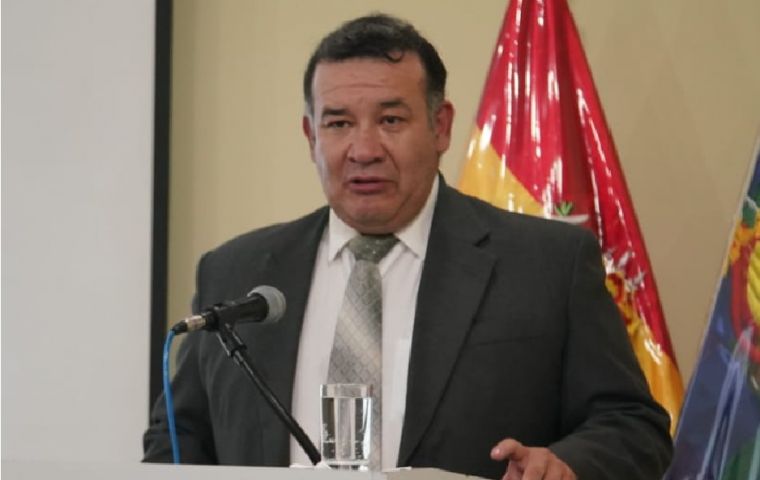MercoPress. South Atlantic News Agency
Inflation a problem in Bolivia as prices soar following road blockades
 We expect that prices in November will tend to go down, Arandia explained
We expect that prices in November will tend to go down, Arandia explained Former President Evo Morales' followers mounting road blockades at key locations nationwide resulted in shortages and the subsequent surge in the price of products that the government is now worried about inflation probably spiraling, National Statistics Institute (INE) Director Humberto Arandia admitted Sunday.
Due to the 24-day road blockades, prices went up by 1.64%, bringing the yearly inflation in October to 7.26%, over twice as much as the 3.6% projection for the entire 2024. According to the INE Chief, the prolonged conflict affected food prices above all, as the circulation of products was interrupted.
“We are aware that inflation has increased due to the lack of products in the market, due to the lack of supply in the market; therefore, if the supply is normalized, what happens to prices, they tend to go down. So, we expect that in November they will tend to go down”, he explained.
In this scenario, Bolivian tenants warned that they might have to vacate their homes or businesses ahead of time due to the economic crisis. Aniceto Hinojosa of the Organization of Tenants Cochabamba (OINCO) and president of the tenants' group at a national level, outlined the seriousness of the situation.
“In terms of housing, we are on the verge of becoming homeless, and commercial stores, service offices, service stores, are already one step away from closing, and commercial stores as well because it is already unsustainable,” he said in a radio interview.
Hinojosa stressed that the high prices and the disparity between the official value of the dollar and the black market were seriously affecting tenants. “Landlords demand to be paid in dollars or else they want to charge us at the black market price. Which, to want to pay at black market price, our macro salaries are not accruing,” he added. “We are talking about 65% of the Bolivian population,” he insisted.




Top Comments
Disclaimer & comment rulesCommenting for this story is now closed.
If you have a Facebook account, become a fan and comment on our Facebook Page!